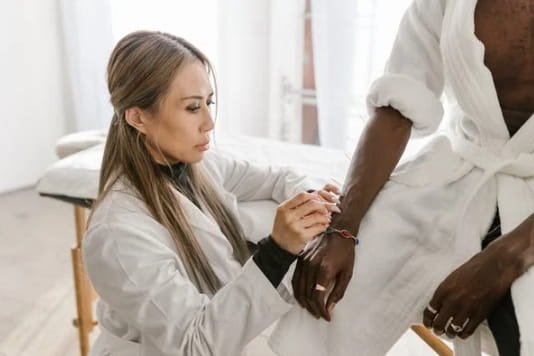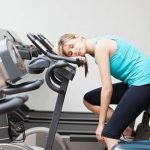Introduction to Acupuncture
The basic principle of Traditional Chinese Medicine is that there are two opposing and interwoven forces within our bodies. Yin and Yang represent the entire person. In Chinese philosophy, Yin represents the cold, tranquil or passive principle, and Yang represents the active, energetic or hot principle.
So what is it and where does it come from?
Acupuncture is one of the oldest medical procedures in the world, it was first used over 2000 years ago in China. In this family of procedures, the body is stimulated, and the energy flow is balanced. Today, acupuncture is practised by hand or by electrical stimulation using tiny metallic needles placed in problematic areas.
Traditional Chinese Medicine is built around acupuncture, which is based on the belief that our bodies contain two opposing forces that cannot be separated.
By maintaining a balance between yin and yang, a healthy state can be achieved. The flow of vital energy may then be stimulated through channels known as meridians. Meridians are pathways along which vital energy flows. Around 2,000 points along the body are connected by these meridians.
Twelve main meridians and eight secondary meridians are identified. Western medicine is still unclear as to how acupuncture works, but several studies have shown that it can be effective.
Having said that, let us proceed to the next question: Does it actually work?
In the National Institute of Health’s opinion, the answer is yes. The effects of acupuncture have been demonstrated in many areas of health care. The list includes postoperative nausea, side effects of chemotherapy, osteoarthritis, low-back pain, headaches, menstrual cramps, addiction, carpal tunnel syndrome, and asthma. The study revealed that acupuncture was able to provide pain relief, improve function and mobility of joints due to arthritis inflammation, and served to complement standard care.
It is also commonly used in fertility and with emotional issues.
Some may doubt the effectiveness of acupuncture, but once they have experienced it, they are believers. According to some studies, acupuncture works by regulating the nervous system. Since acupuncture induces stimulation of the nervous system to produce its effect, endorphins and immune system cells are released at specific sites on the body. Acupuncture is also thought to affect brain chemistry by changing the neurotransmitters in the brain.
According to studies, acupuncture was a benefit to those taking part, and as someone who has used it, I can attest to its beneficial effects. In spite of acupuncture’s classification as an alternative medicine treatment, and despite its unknown mechanisms, treatment has been proven to aid in maintaining optimal health.
Does acupuncture have any benefits for those who are otherwise healthy?
Absolutely. Since acupuncture is based on the belief that vital energy flow must be maintained in order to remain healthy, it acts as a tool for realignment.
Despite feeling and appearing quite healthy, our vital energy flow can be out of balance. Therefore, acupuncture is as much preventive medicine as it is a treatment. Getting your meridian points checked and balanced before it needs repair is like having your car receive a tune-up.
So get yourself booked in and prepare to rev up that amazing engine of yours
Disclaimer Note: It’s important to note though, that just because something is natural does not mean zero risk. While many Chinese Therapies are very low risk there still may be complications, contraindications and contra-actions.
The internet is full of information on how you can cure yourself with natural remedies, Chinese medicine and more, but we recommend that you seek out a Qualified Natural Health Practitioner, Chinese Medicine Practitioner or TCM Doctor or Acupuncturist expert and always consult a Doctor before trying any new things. Never stop taking any prescribed medication without speaking to your health practitioner first.













